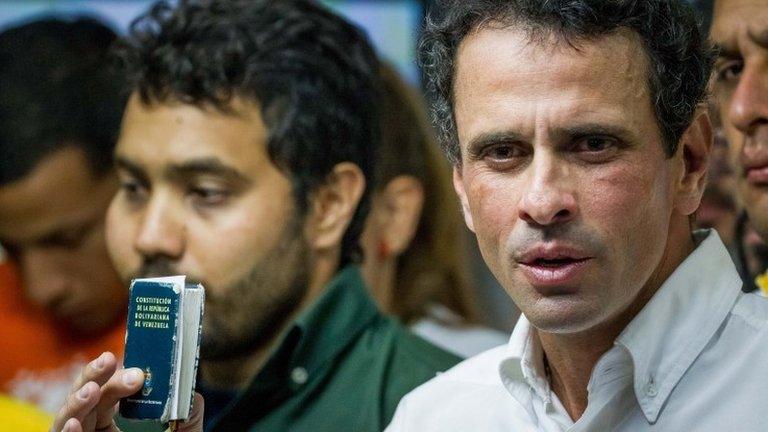OAS fails to agree on Venezuela as protests continue
- Published
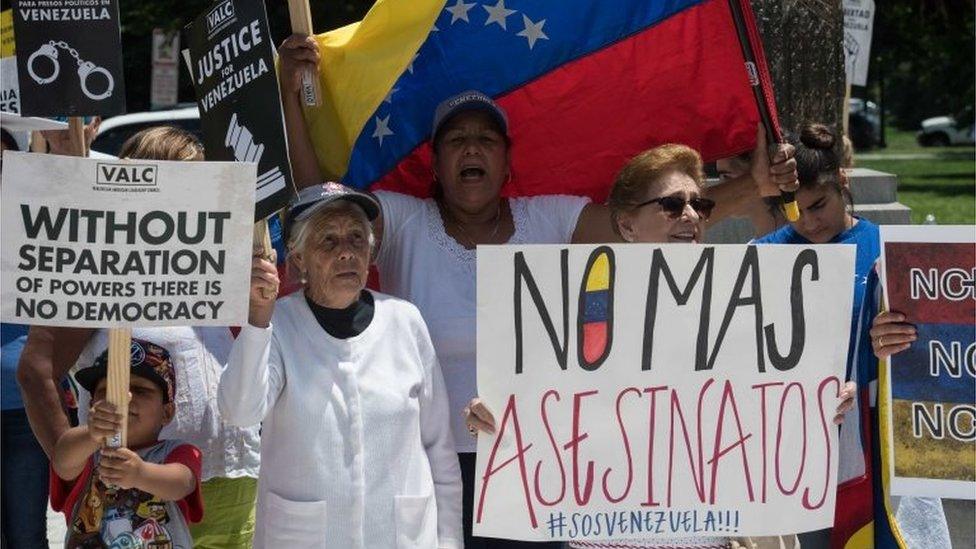
Critics of the Venezuelan government gathered in front of the OAS headquarters
A meeting of the Organisation of American States to discuss the crisis in Venezuela ended without agreement in Washington on Wednesday.
A declaration criticising the Venezuelan government was put forward by countries including the United States and Mexico but was opposed by some of Venezuela's Caribbean allies.
Meanwhile in Caracas, anti-government protesters and security forces clashed.
Almost 60 people have died in protest-related violence since 1 April.
Rival declarations
Representatives of 33 countries from the western hemisphere attended the meeting on Venezuela's crisis at the OAS headquarters.
Read more:
Venezuela did not show up. The South American country announced in April that it would withdraw from the regional body after a majority of its members voted in favour of holding the meeting.
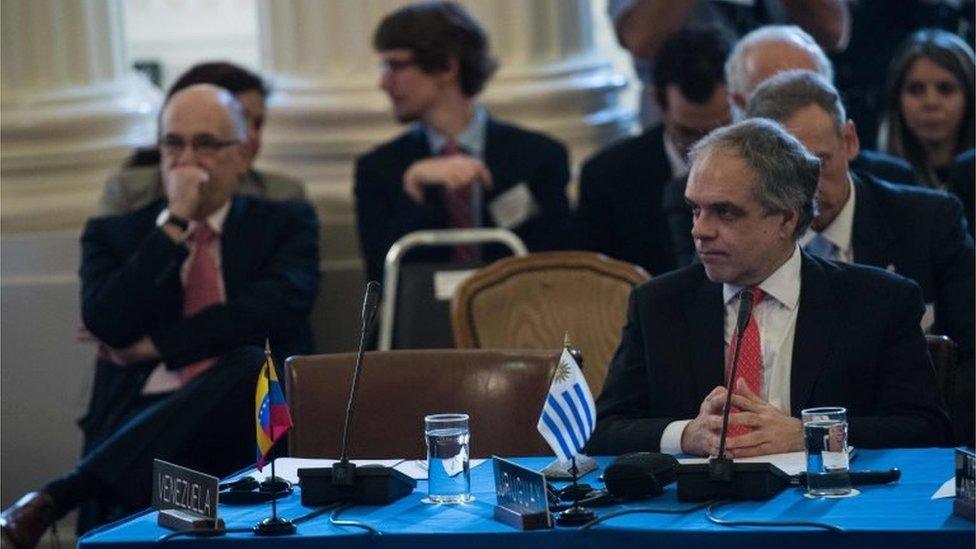
Venezuela was accredited but did not show
Canada, Mexico, Panama, Peru and the United States put forward a declaration calling for an immediate end to the violence, for political prisoners to be freed and respect for human rights and the rule of law.
The declaration also included a demand that the Venezuelan government shelve plans for the creation of a citizens' assembly to rewrite the constitution.
The plan was announced by President Nicolás Maduro on 1 May as a way of bringing the country together but opposition politicians have denounced it as a "fraud" and a way to further delay overdue gubernatorial elections.
US State Department Undersecretary for Political Affairs Thomas Shannon said the ultimate goal of the declaration was to "return to full respect for the rule of law, full respect for freedoms of political expression and participation" in Venezuela.
But it failed to get the support of two-thirds of the OAS countries present, as Caribbean nations which rely on cheap oil from Venezuela put forward their own, softer declaration.
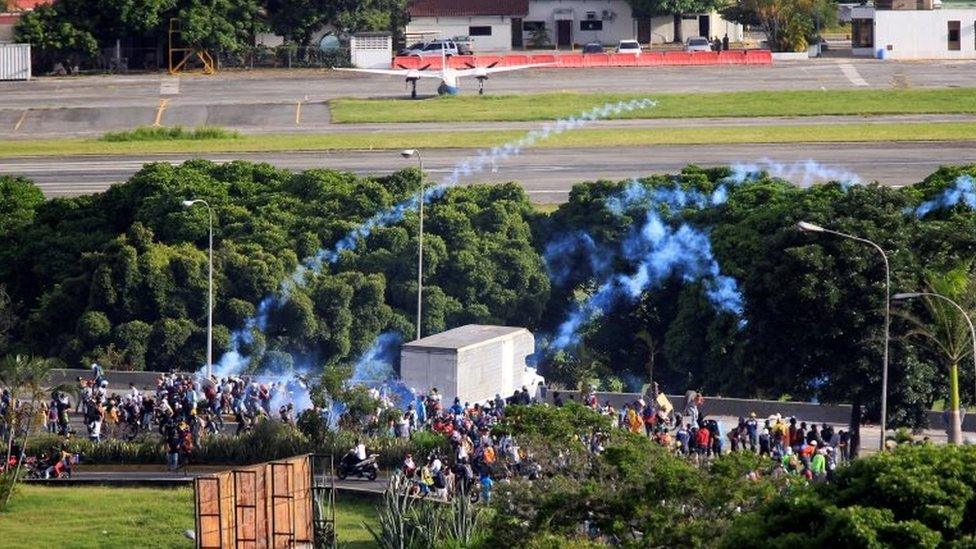
Police and protesters clashed outside La Carlota airbase in Caracas
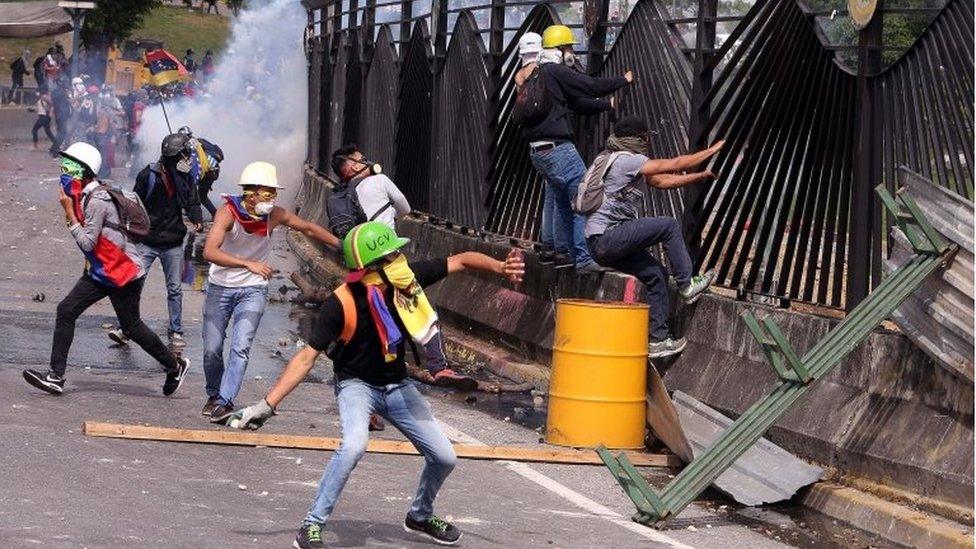
Opposition politicians said at least 89 people were injured in Wednesday's clashes
Nicaragua, a staunch ally of Venezuela, opposed the crisis meeting altogether, arguing Venezuela was the victim of a "political lynching".
After five hours of discussion and no agreement, member states agreed to postpone the meeting to a later date in June.
The Venezuelan government celebrated the suspension as a victory against "interventionist countries" trying to meddle in Venezuelan affairs.
While the discussions were under way in Washington, thousands of anti-government protesters took to the streets in Caracas again and tried to march to the foreign ministry.
Opposition politicians said at least 89 people were injured when protesters clashed with security forces blocking their way.
- Published30 May 2017
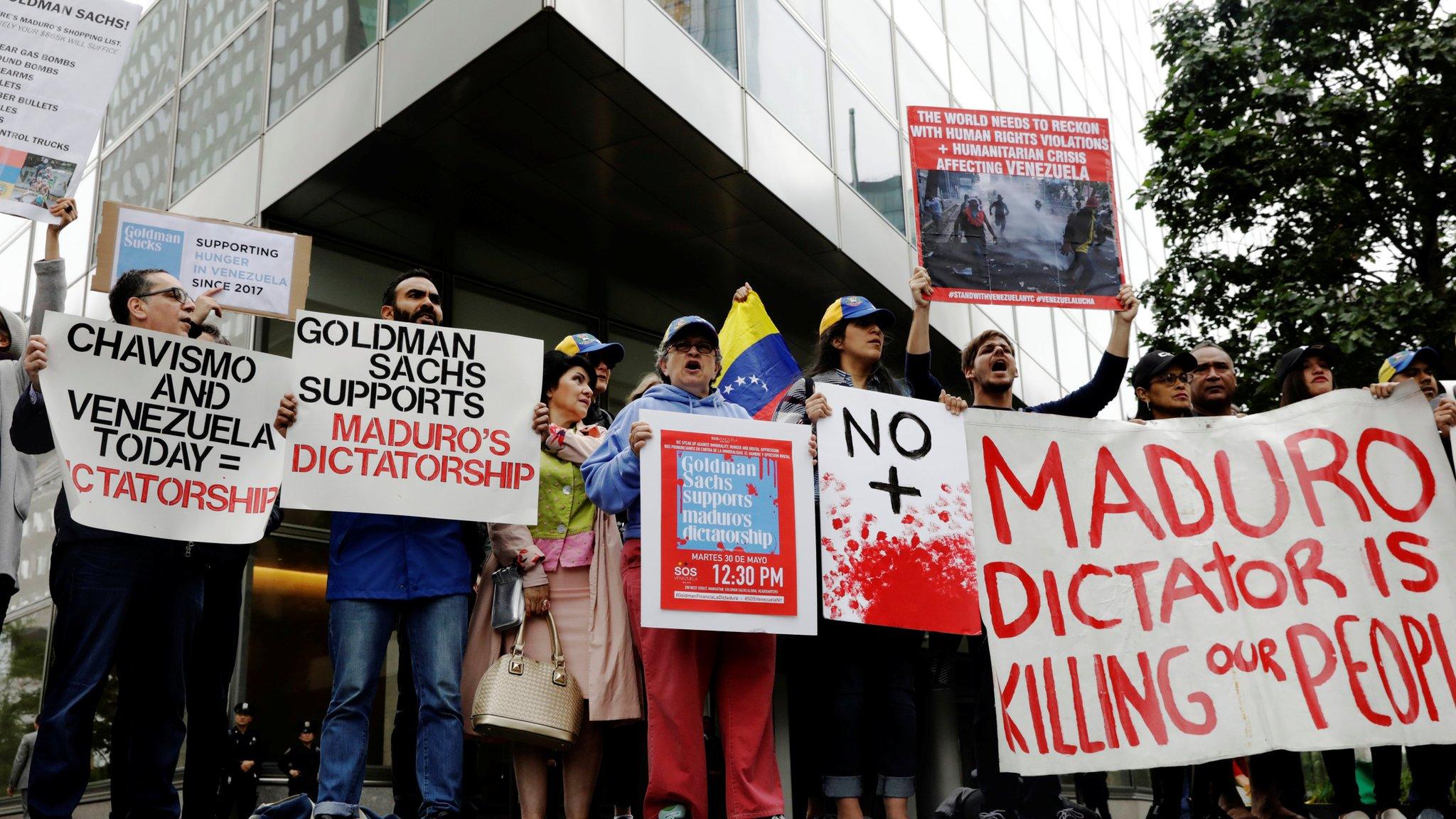
- Published30 May 2017
